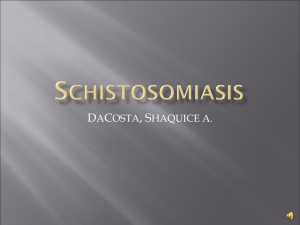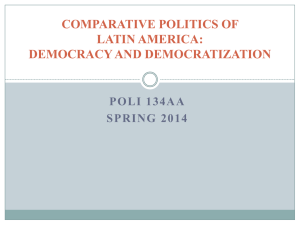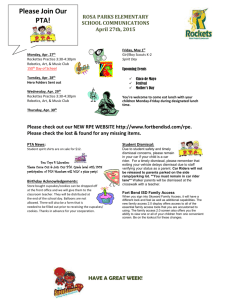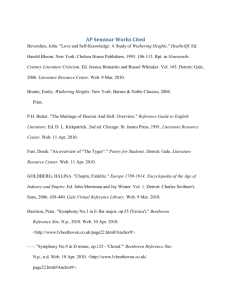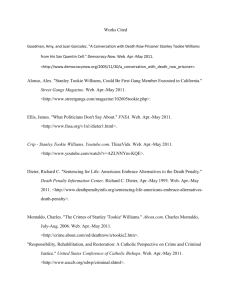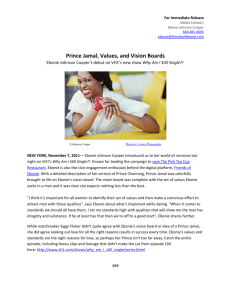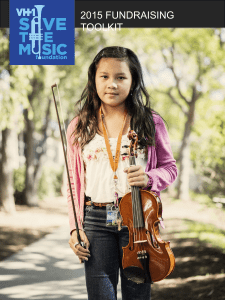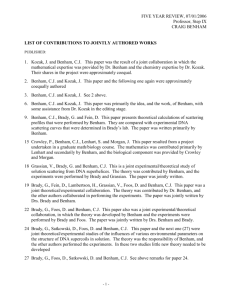Music Education Outline
advertisement
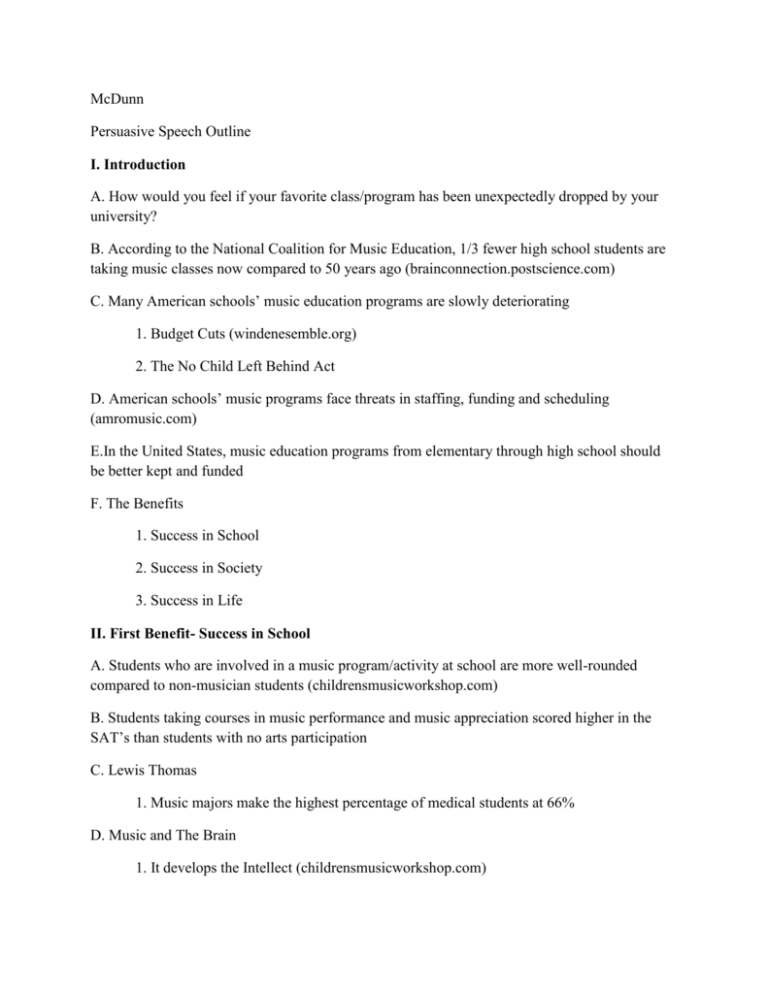
McDunn Persuasive Speech Outline I. Introduction A. How would you feel if your favorite class/program has been unexpectedly dropped by your university? B. According to the National Coalition for Music Education, 1/3 fewer high school students are taking music classes now compared to 50 years ago (brainconnection.postscience.com) C. Many American schools’ music education programs are slowly deteriorating 1. Budget Cuts (windenesemble.org) 2. The No Child Left Behind Act D. American schools’ music programs face threats in staffing, funding and scheduling (amromusic.com) E.In the United States, music education programs from elementary through high school should be better kept and funded F. The Benefits 1. Success in School 2. Success in Society 3. Success in Life II. First Benefit- Success in School A. Students who are involved in a music program/activity at school are more well-rounded compared to non-musician students (childrensmusicworkshop.com) B. Students taking courses in music performance and music appreciation scored higher in the SAT’s than students with no arts participation C. Lewis Thomas 1. Music majors make the highest percentage of medical students at 66% D. Music and The Brain 1. It develops the Intellect (childrensmusicworkshop.com) a. Albert Einstein (cerebromente.org) 2. Dr. Whitwell a. The Left and Right Side of the Brain II. Second Benefit- Success in Society A. Music is a part of the fabric that makes our society besides langauge and history (childrensmusicworkshop) B. Many cultures depend on music to carry its ideas, ideals, and customs C. Music also helps 1. Economy a. Jobs b. Toursim 2. History a. Vietnam War D. Many colleges like the idea of students participating in the arts and music because it broadens their understanding of the world that’s surrounds them III. Third Benefit- Success in Life A. Music is a bridge that connects people from person to person B. It’s a form of self-expression (cerebromente.org) 1. Relieves stress and reduces blood pressure C. It’s a factor of everyday life (artistshousemusic.org) 1. Morning Routine 2. The radio D. Teaches young people to conquer fears and to take risks 1. Shows important life lessons a. Hard work pays off IV. Supporters of Muisc Education A. John L. Benham (isd197.musiccoalition.org) 1. Music in World Cultures, Inc 2. “How to Save Your School Program- A Handbook for the Music Advocate” 3. His Contribution a. Restored over 1500 teaching positions b. Led the continuation of music programs for over 300,000 students c. Responsible for saving over $61 million in budgetary reduction in music B. Vh1 Save The Music Foundation 1. Created in 1997 2. Their Mission a. To restore instrumental music education programs in the United States b. To make sure every child has access to a complete education including the benefits of music (Vh1savethemusic.com) V. Conclusion A. According to the National Coalition for Music Education, 1/3 fewer high school studens are taking music classes now compared to 50 years ago (brainconnection.postscience.com) B. Many American schools’ music education programs are slowly deteriorating 1. Budget Cuts (windenesemble.org) 2. The No Child Left Behind Act C. The Benefits 1. Success in School 2. Success in Society 3. Success in Life D. Music makes a huge impact on individuals and society, so why not start early by creating and improving music programs in schools since children are the future? Work Cited- Music Education "Benefits of Music Education." Music Education Online by Children's Music Workshop. 2006. Web. 16 Apr. 2011. <http://www.childrensmusicworkshop.com/advocacy/benefits.html>. Cavalier, Debbie. "Music Education in America." Artisthousemusic. 30 June 2006. Web. 16 Apr. 2011. http://www.artistshousemusic.org/articles/music+education+in+america Chipongian, Lisa. "BrainConnection.com - Can Music Education Really Enhance Brain Functioning and Academic Learning?" BrainConnection: The Brain and Learning. Web. 18 Apr. 2011. <http://brainconnection.positscience.com/topics/?main=fa/musiceducation>. Conrad, David. "American Music Education." River Valley Wind Ensemble. 2006. Web. 18 Apr. 2011. <http://www.windensemble.org/education/timecurriculum.htm>. "Dr. John L. Benham." ISD 197 Music Coalition. 2007. Web. 16 Apr. 2011. <http://www.isd197musiccoalition.org/benham.html>. O'Donnell, Laurence. "Music and the Brain." "Brain & Mind" Magazine - WWW Home Page. 1999. Web. 17 Apr. 2011. <http://www.cerebromente.org.br/n15/mente/musica.html>. "Promoting Music Education." Amro Music, Memphis: Home. Web. 18 Apr. 2011. <http://www.amromusic.com/promoting-music-education>. . "What We Do | VH1 Save The Music." VH1 Save The Music | VH1 Save The Music Foundation. Web. 16 Apr. 2011. <http://www.vh1savethemusic.com/node/14>. "YouTube - VH1 Save the Music Foundation PSA." YouTube - Broadcast Yourself. Web. 19 Apr. 2011. <http://www.youtube.com/watch?v=7h8aIdBKGU8>.


